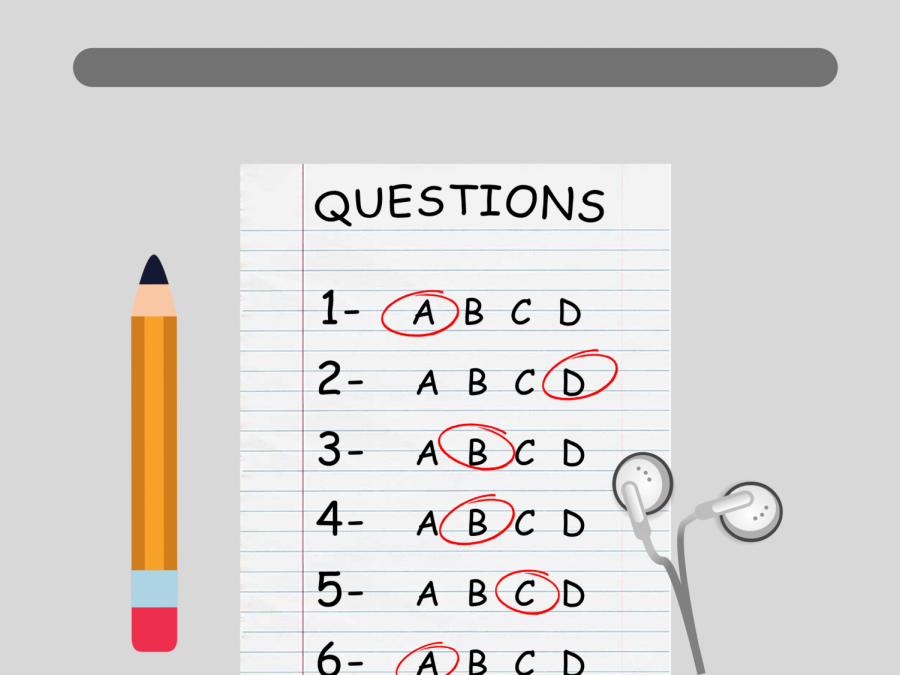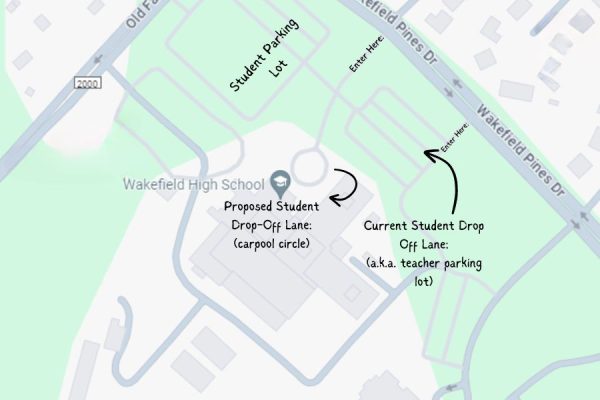Students should listen to music in class
Increased test anxiety may be lowered by allowing students to listen to music.
For as long as headphones have been allowed in schools, teachers have been fussing at students for listening to music in class. Many in the past generation remain unaware of the effects of music in a learning environment due to the recent jump in sound technology. Music is actually known to lower stress levels, provide a sense of familiarity, and allow students to zone in when used properly in an educational context.
One popular point is that music can decrease stress levels, allowing students to perform better on tests or quizzes. Researchers at Stanford University found that listening to music can reduce blood pressure and heart rate in some patients, which are both known signs of stress. The researchers also found that although slower music calms the muscles, a faster tempo can both help students concentrate easier and synchronize with brainwaves to keep a person relaxed and conscious.
Additionally, listening to something familiar in a setting where everything else is confusing can be a deciding factor in whether or not a person is able to make it through a situation — or in this scenario, pass a test. According to ADD Coach Academy’s website, most people find silence naturally awkward. Many students find that when they are uncomfortable they are unable to focus, and as a result, they receive lower scores on assignments. Even genres such as rap or pop, which are not known for increasing productivity, can boost a student’s performance based solely on the fact that they create a positive environment.
Many students find that when they are uncomfortable they are unable to focus, and as a result, they receive lower scores on assignments.
Students with ADHD, anxiety, or other mental disorders can especially suffer from the silence because it leaves them with only one thing to zone in on. As someone who has experienced anxiety for most of my schooling career, I can easily say that the quieter the room gets, the easier it is to hear my racing thoughts. Music has always provided an outlet for me by filling the silence and allowing me to focus on something else anytime I get too overwhelmed. Although I tend to listen to quieter music while I’m studying, I can understand why some students would just listen to whatever they feel comfortable with.
However, teachers should still take caution when allowing students to listen to their own music. Some kids may take the opportunity to call friends, watch videos, or otherwise take advantage of their newfound freedom.
How can educators prevent this? Ask students to keep their phones faceup on their desk, put on their music, and then leave their devices alone. My physics teacher adopted this method earlier this year, and almost all of the students have respected his restrictions thus far. These rules also make it easier to focus on the assignment, as I am not worried about switching back and forth between playlists — I queue up everything that I want to listen to and then leave my device alone.
All of this information leads to one conclusion: music can improve educational progression, and teachers should allow students to listen to music in school. Even those who choose not to listen to music in a professional setting can agree that almost everyone can benefit from a little bit of Beethoven, the Beatles, or some good old-fashioned beats.















brady • May 18, 2023 at 8:48 am
howler!!!!!!!!!!!!!!!!!!!!!!!!!!!!!!!!!!!!!!!!!!!!!!!!!!!!!!!!!!!!!!!!!!!!!!!!!!!!!!!!!!!!!!!!!!!!!!!!!!!!
amelia • May 16, 2023 at 2:17 pm
i don’t agree
brady • May 16, 2023 at 9:51 am
cool
name • Mar 22, 2023 at 10:49 am
cool
Kamila • Feb 17, 2023 at 12:13 pm
i agree ?
Aaron • Jan 23, 2023 at 4:01 pm
Super cool I agree in fact I am listening to music right now ft burn the house down by AJR.???
Aaron • Jan 23, 2023 at 3:52 pm
Super cool I definitely agree in fact I am in class right now and i am listening to music ft burn the house Dow by AJR
shyla • Jan 23, 2023 at 1:19 pm
beautifull comment?
shyla • Jan 23, 2023 at 1:18 pm
…noice
Kim • Jan 23, 2023 at 12:01 pm
The quote is good ?
Aiden • May 26, 2022 at 9:39 am
I agree with this artical so much and thank you.
gurtruder • May 12, 2022 at 8:19 am
hello maya!!!! this was very helpfull!!! thankyou!!!!!!!! :)))))))))
Samantha • Feb 23, 2022 at 12:40 pm
This was amazing it helped me do my essay in no time. Amazing job!!!!!